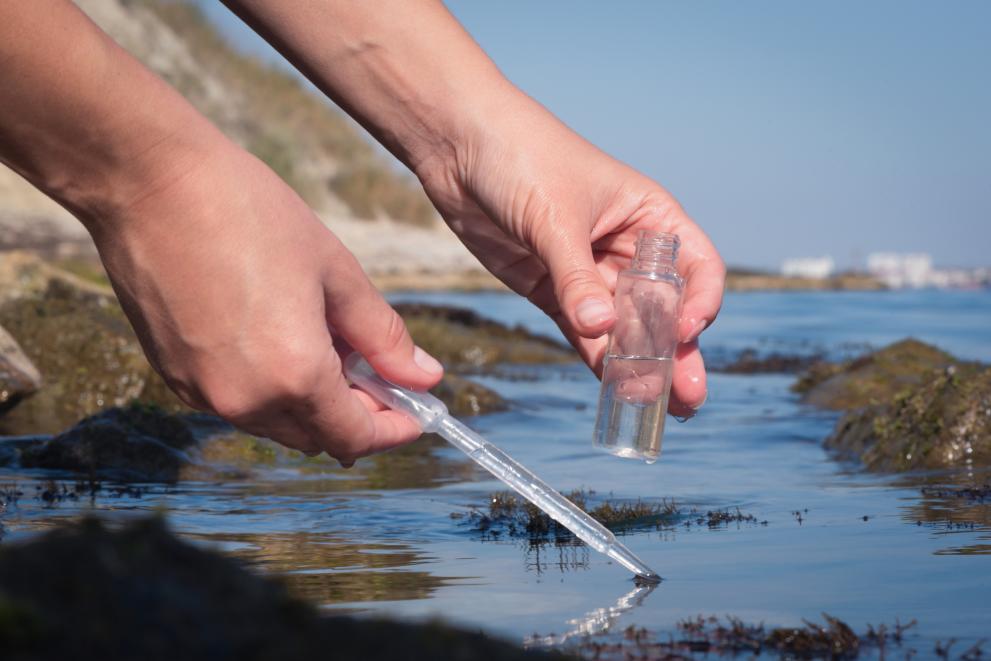
The Commission adopted today two new measures to enhance the EU’s water resilience and to improve water quality and quantity throughout the continent.
They include a standard methodology to measure the presence of microplastics in water and a delegated act to ensure that reusing treated wastewater for agricultural irrigation is safe.
Across the EU, many different methods for measuring microplastics in drinking water are used, making it very difficult to compare and interpret monitoring results. The harmonised, standard methodology adopted today will support Member States in gathering information about the presence of microplastics in their water supply chain.
A delegated act on water reuse was also adopted today. In it, the Commission specifies the key technical elements to be examined and taken into account when preparing risk management plans to help authorities and practitioners in the preparation of these plans. These elements include processes for the production, storage and distribution of the reclaimed water, and the identification of potential hazards and risks associated with wastewater reuse.
The Commission published a notice to help Member States further define the ‘good environmental status’ of the seas and to respect the threshold values aimed at allowing the sustainable use of their resources.
In the notice, the Commission clarified that threshold values (e.g. on maximum allowable levels of underwater noise, on maximum allowable amounts of litter on beaches) agreed by Member States at EU level or through regional cooperation should be used when they update their marine strategies under the Marine Strategy Framework Directive by October 2024. By using agreed standards and clarifying parameters against which to assess the ‘good environmental status’ of the seas, Member States also provide certainty to economic operators on how to use the sea sustainably, while avoiding significant or irreversible harm to marine life or habitats.
Speaking on the issue, the Commissioner for Environment, Oceans and Fisheries, Virginijus Sinkevičius, said:
We want to be sure that the water we use, from drinking to irrigation, always meets the highest possible safety standards. With today’s standards, citizens can be assured that their drinking water will be carefully monitored against the presence of microplastics and that any wastewater that is reused is safe, limits excessive water abstractions and helps to restore the broken water cycle.
But to truly restore this cycle, we also need to protect our seas, so I count on Member States to ensure that the sustainable marine use ambitions we have agreed to are carried through in their upcoming marine strategies.
Download links to official documents:-
Delegated Act to measure microplastics in water - European Commission (europa.eu)
Notice under Marine Strategy Framework Directive - European Commission (europa.eu)
Background
To ensure Europe makes progress towards becoming a water resilient continent, it is essential to protect the quality of our waters and to use water efficiently.
The recast Drinking Water Directive entered into force on 12 January 2021. Member States had to transpose the Directive into national law by 12 January 2023. The objective of the recast directive is to protect human health by ensuring high water quality and to improve access to drinking water for all EU citizens. It addresses the growing public concern about the effects on human health of emerging substances’ presence in drinking water, such as microplastics. The European Commission’s Joint Research Centre and Member States’ experts supported the process of developing the methodology adopted today.
The Water Reuse Regulation promotes a wider reuse of treated wastewater for agricultural irrigation, alongside the Urban Waste Water Treatment Directive. Safely re-using wastewater is key to respond to growing water stress in the EU, caused by accelerated climate change impacts, constantly increasing demand, and pollution and biodiversity loss. This practice reduces abstractions from surface and groundwaters, helping to restore the water cycle. The Water Reuse Regulation sets out harmonised minimum water quality requirements for the safe reuse of treated urban wastewaters for agricultural irrigation. It also sets out minimum monitoring requirements, risk management provisions to assess and address potential additional health and environmental risks, permitting requirements and provisions on transparency, whereby key information on every water reuse project is made available to the public.
The Marine Strategy Framework Directive (MSFD) provides a framework for monitoring, assessing and implementing measures to protect marine life and reduce pollution. It aims to achieve a good environmental status of the EU's marine waters. Further legislation (GES Decision) requires that Member States quantify limits, or threshold values, set to the levels of the pressures or impacts a sea can withstand without significant or irreversible damage to the marine life and its habitats.
For more information
Drinking water - European Commission (europa.eu)
Marine Strategy Framework Directive
Details
- Publication date
- 11 March 2024
- Author
- Directorate-General for Environment

